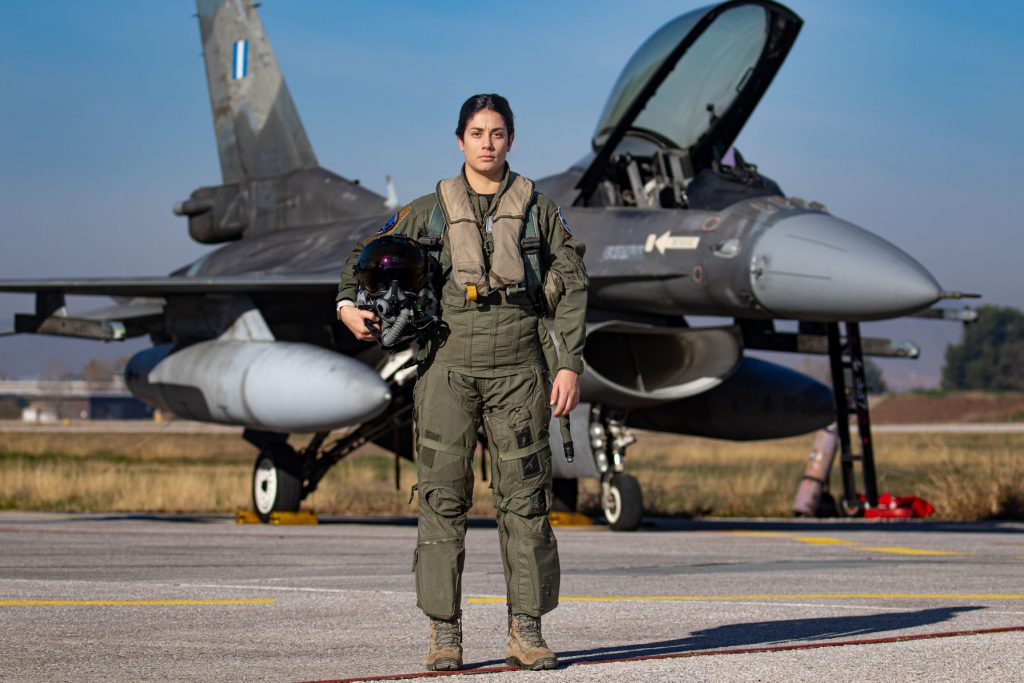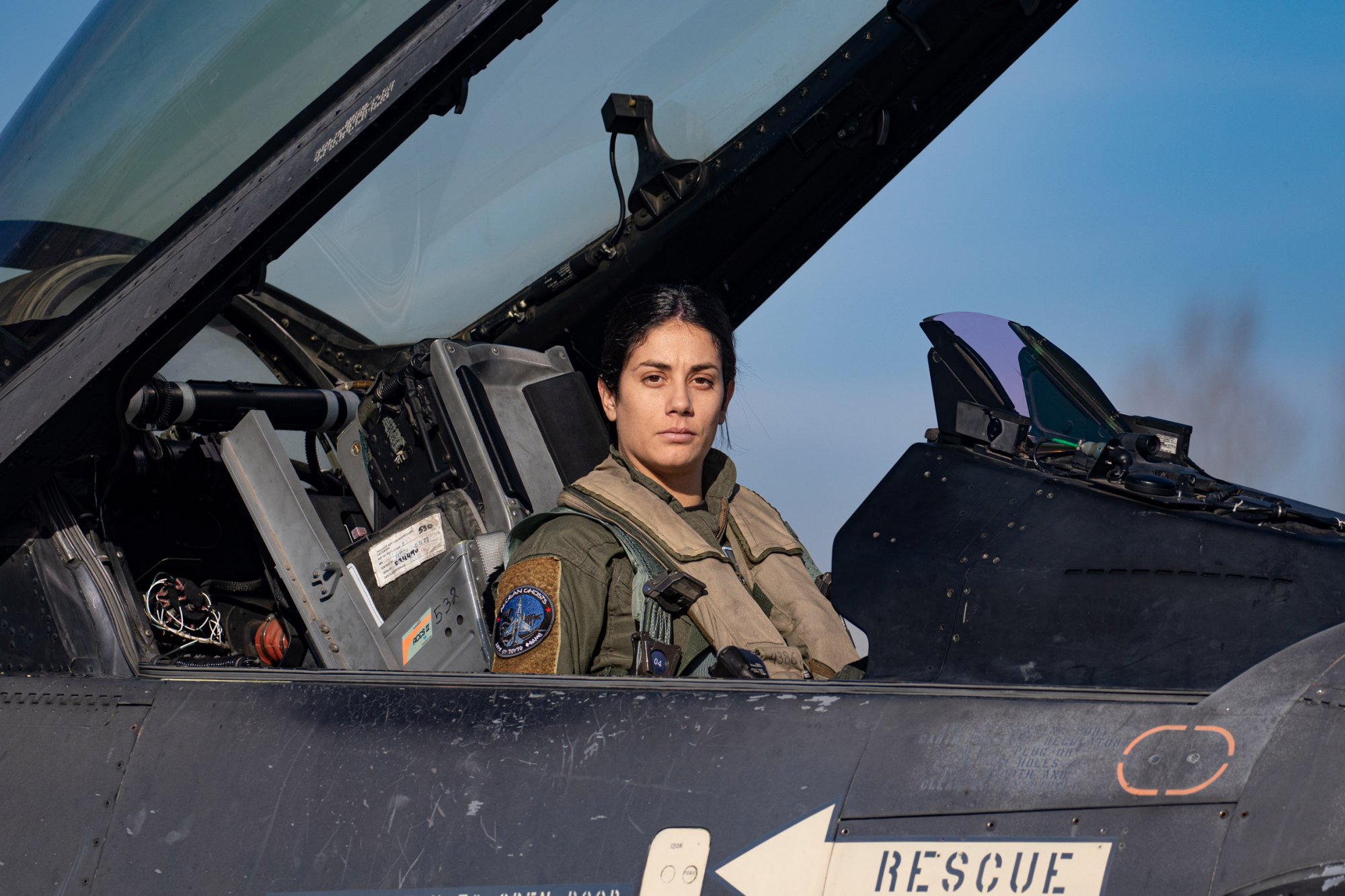Females have managed to break the proverbial “glass ceiling” in many an occupation, but managing to be accepted into real combat roles in the military, especially the air force, has possibly been one of the toughest barriers to overcome.
Flying Ofc. Chrysanthi Nikolopoulou is one of those women, a trailblazer in this respect, as she is the first Greek woman to pilot an F-16 fighter of the Hellenic Air Force (HAF).
Hailing from the northern city of Kavala, First Lt. Nikolopoulou has engaged in aerial combat training and experienced the very high G-forces over the Aegean. When asked about her emotions during a mission to identify and intercept an airspace intruder, she responds with remarkable composure: “It requires reflection and dedication to your mission because dangers lurk.”
“Flying a F-16 is, in itself, a unique experience, as each flight offers different emotions. Nevertheless, the environment is so demanding that you must be dedicated and focused on what you are doing every second,” the 28-year-old said, speaking to ToVimaMagazino.
Responsibility and excellent training are paramount, she said, adding that she had to work very hard during her four years of training at the Hellenic Air Force Academy. Her training was conducted with the T-41, T-2, and T-6 aircraft, before stepping up to the F-16.
What made you become a pilot?
“My love for flights and fighter jets has always been within me. In high school, without any stimulus, as my family background has no connection to aviation, I decided to apply to the Icarus (air force academy) School. Today, I feel like the luckiest person to be able to pursue this profession.”
“Acceptance from male colleagues came almost immediately”
You are the first woman in the F-16s. What was your impression when piloting such an expensive fighter jet for the first time?
“It is an honor for me, and I feel particularly proud to be the first woman in the F-16s. I will make every effort to perform to the best of my abilities during my aviation career because it is not just a title but a function. I still remember the first time I entered the F-16 cockpit with my instructor. I was eagerly anticipating experiencing the sensation of flight and the G-forces.”
What was the reaction of your male colleagues? Your friends and family?
“The acceptance of a woman in any professional environment, especially when in the minority, often raises some level of hesitation. However, in the Hellenic Air Force, where concepts like collaboration and camaraderie are intertwined with mission success, acceptance from male colleagues came almost instantly. From friends and family, she said she received unwavering support since the beginning, making her journey into the world of F-16 piloting all the more remarkable.”
Facing Challenges with ‘Steely’ Resolve
When asked about encountering difficulties in ID missions or even engagements, the young Greek pilot was laconic. “Every mission is a challenge for the pilot, with its own peculiarities and demands. If I were to highlight one, it would be the first ‘scramble’ flight.”
Regional Roots of Excellence
A glance at the hometowns of pilots in the Hellenic Air Force reveals a predominant origin from rural regions. Even the revered pilots who sacrificed their lives for the country’s freedom and sovereignty hail from places outside urban centers. Thus, these young individuals, with remarkable training, composure, experience, professionalism, and determination, stand as “Sentries of Thermopylae”, as their superior officers proudly acknowledge.

Photo by Kostas Alkousis
Proudly Soaring in the F-16
First Lt. Nikolopoulou has been taking part in missions not only over the Aegean but also in international exercises like “Iniochos” for three years, involving numerous foreign units, showcasing her skills in joint training with allied air forces.
Serving in the 110 Combat Wing, known as the “Ghosts,” the Greek officer upholds the motto “Machimotatoi oi ischýontes” from Aristotle’s “Nicomachean Ethics,” meaning “The brave are fearless.” The mission of the 110th Combat Wing is to maintain a high level of efficiency and readiness, ensuring proper organization, personnel training, and maintenance of equipment for the successful execution of aerial operations whenever required.
Guidance for Aspiring Female Pilots
When asked what advice she would give to young girls aspiring to become fighter pilots, she emphasizes the importance of belief. “I would advise girls who aspire to become fighter pilots to believe that they can become and achieve what they dream of. If they don’t dare in their lives, they will never reach what they truly love. I encourage them to take risks, even when everything seems impossible and difficult. It’s worth fighting for their desires and personal ambitions.”



